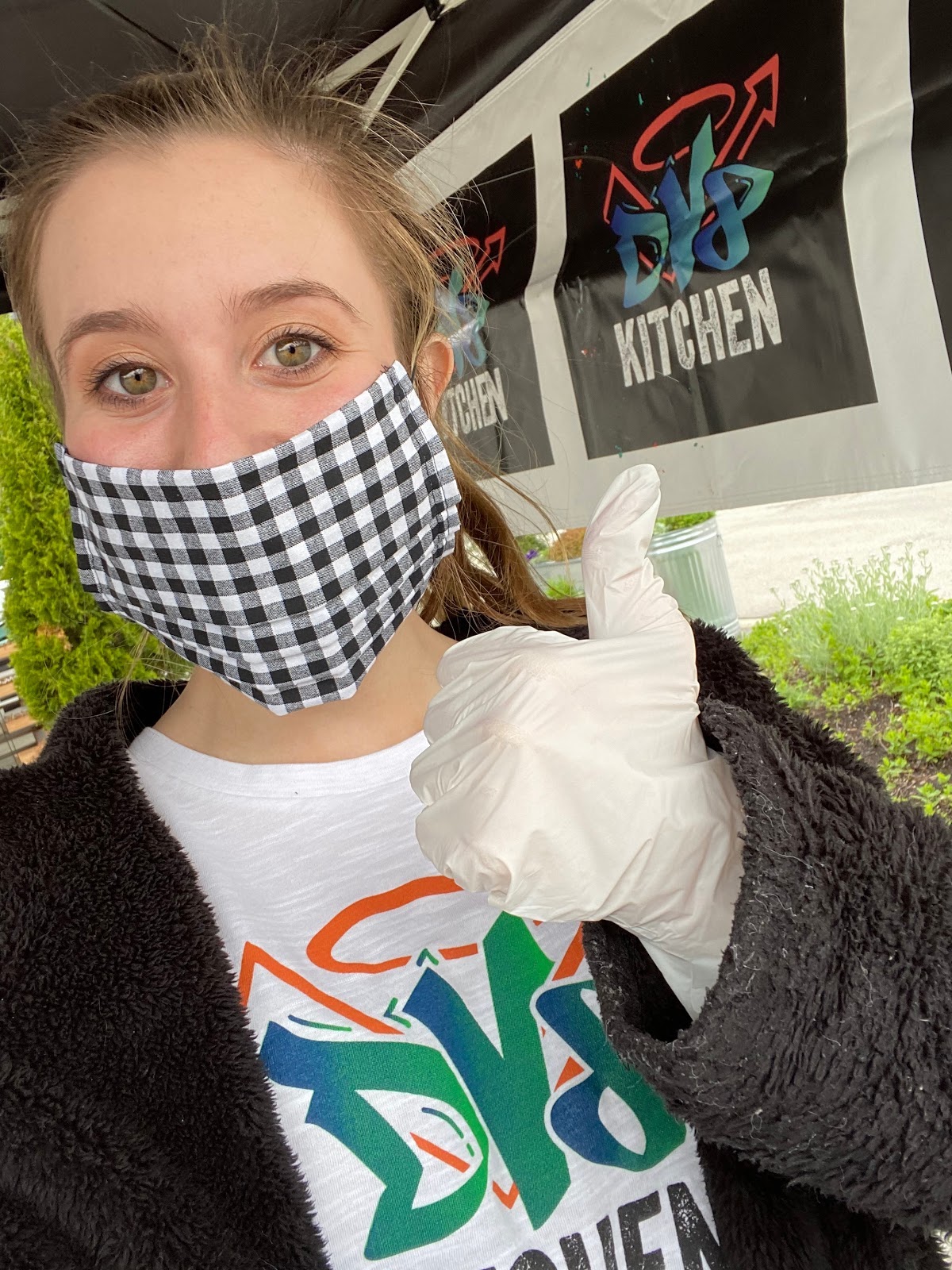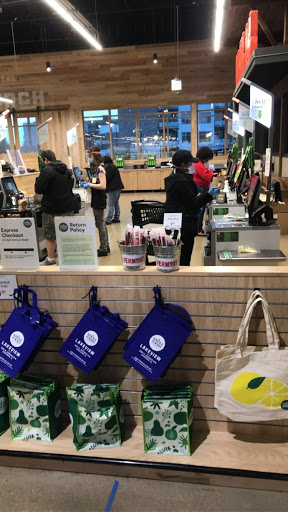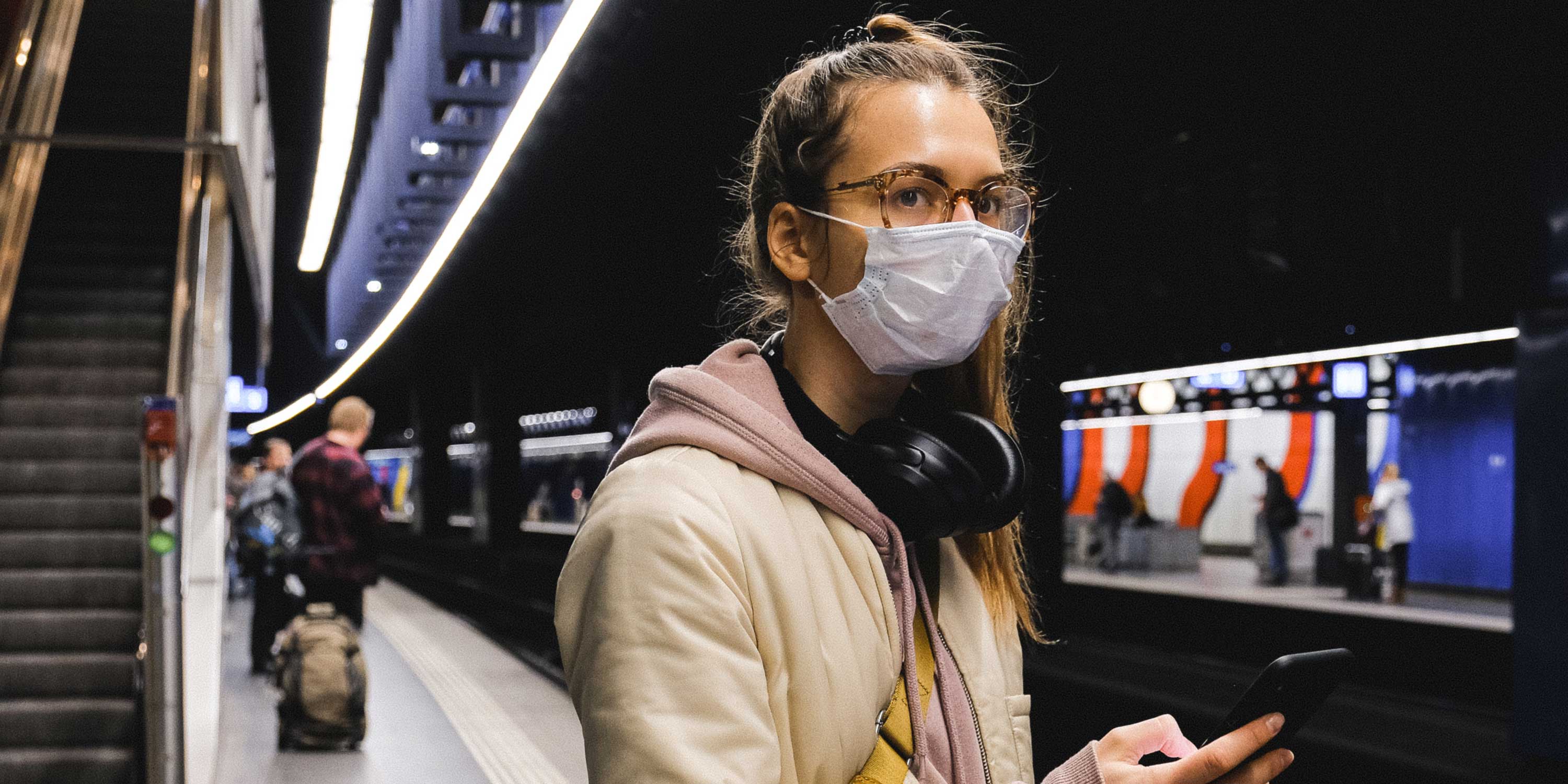How college students are handling the responsibility of working in a pandemic
Many college students around the country have been furloughed due to COVID-19 shelter-in-place restrictions. However, those deemed “essential workers” are still showing up on the front lines to keep businesses up and running.
Essential workers are those who are employed by businesses that are allowed to remain open like grocery stores, gas stations and restaurants that offer carry out and delivery options. While customers are thankful that these businesses are still open, students that are essential workers share the concern that healthcare workers also face — contracting COVID-19.
Sam Perez, a 20-year-old student attending the University of Georgia, helps her family with carry-out and curbside orders at their two restaurants, Saul Good Restaurant & Pub and DV8 Kitchen in Lexington, Kentucky. She is responsible for running carry-out orders to customers and handling payments.
Since she is immunocompromised, she believes it is imperative to feel safe as an essential worker.
“I try not to think about it often, but if I do start to dwell on it, then I do get a little concerned just because of how many people I’m coming into contact each day,” Perez said. “The biggest thing that makes me nervous is handling money. Money is always pretty germy, so especially now I try to be extra-cautious to wash my hands well and change gloves after each cash transaction.”
As of May 2, Kentucky does not have a restriction on using cash at essential businesses, but other states have only been accepting card payments. Kentucky’s governor, Andy Beshear, is requiring shoppers to wear masks starting May 11, according to LEX 18 News. Though Sam and her coworkers aren’t required to wear masks for another week, a customer donated handmade masks so the staff can have some on hand.

Photo courtesy of Sam Perez
Josh Clayton, a 22-year-old DePaul student, practices safety measures while working at a Whole Foods in the Lakeview neighborhood. Even though there are reminders announced over the store’s speaker for shoppers to practice social distancing, not every shopper follows the guidelines.
“As far as whether other people are practicing it, I’d say that’s a mixed bag. I think a majority of the people that come to our store really need to try to adhere to the social distancing guidelines, and Whole Foods has put stickers on the floor in front of all the counters that indicate where six feet apart is,” Clayton said.
While working behind the meat counter, he gently reminds customers to keep a safe distance.
“I have to constantly remind people to stay six feet apart, or not to touch the top of the meat case, and sometimes they seem exasperated by it,” he said.
Clayton’s experiences with shoppers not practicing social distancing and touching surfaces is troubling not only because the shoppers are putting themselves at risk, but because it could potentially affect the health and safety of the employees.
According to ABC 7, an employee at a Whole Foods on the North Side tested positive for COVID-19 on March 29. That specific location is conducting extra cleaning practices, and Clayton says his store in Lakeview has also implemented extra sanitizing.

Photo courtesy of Josh Clayton
“At Whole Foods we do temperature checks for all employees working in the store every day, and everyone that works and shops is required to wear a mask. Additionally, Whole Foods has added more staff to sanitize and clean the store all throughout the day, focusing on areas that are frequently touched by people,” he said.
Recently, Whole Foods has been in the news for its employees protesting work because of lack of protection for employees or customers, according to the Guardian.
The Centers for Disease Control and Prevention (CDC) states that anyone who has potentially been exposed to COVID-19 needs to follow an extra set of procedures, including screening temperatures, monitoring temperatures, wearing a mask, social distancing and disinfecting and cleaning work spaces.




NO COMMENT